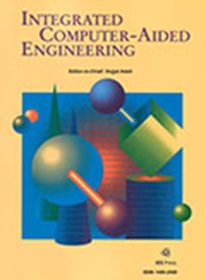使用查询和分类进行功能评价的多语料库汇总评价方法
IF 5.3
2区 计算机科学
Q1 COMPUTER SCIENCE, ARTIFICIAL INTELLIGENCE
引用次数: 1
摘要
提取摘要是一种重要的自然语言处理方法,用于文档压缩、改进阅读理解、关键短语提取、索引、查询集生成和其他分析方法。与抽象摘要相比,提取摘要具有特定的优点,因为它保留了样式、特定的文本元素和可能与文本更直接相关的复合短语。在本文中,提取摘要的相对有效性被考虑在两个截然不同的语料库上:(1)从古腾堡计划中获得的一组小说作品(总共100部,主要是小说),以及(2)一大批新闻文章(3000),其中新闻文章的作者提供了一个真实的摘要(黄金标准)。两个集合使用5种不同的Python sumi算法进行评估,并与随机生成的摘要进行定量比较。介绍了两种评估摘要有效性的功能方法,一种是对原始文档及其摘要使用查询集,另一种是对12类集合使用文档分类来比较不同的摘要方法。结果,不出所料,显示出与这两个数据集的不同性质相一致的相当大的差异。LSA和Luhn总结方法在小说数据库上最有效,而所有五种总结方法在文章数据库上都同样有效。总的来说,鲁恩的方法被认为是最普遍相关的测试。本文章由计算机程序翻译,如有差异,请以英文原文为准。
Summarization assessment methodology for multiple corpora using queries and classification for functional evaluation
Extractive summarization is an important natural language processing approach used for document compression, improved reading comprehension, key phrase extraction, indexing, query set generation, and other analytics approaches. Extractive summarization has specific advantages over abstractive summarization in that it preserves style, specific text elements, and compound phrases that might be more directly associated with the text. In this article, the relative effectiveness of extractive summarization is considered on two widely different corpora: (1) a set of works of fiction (100 total, mainly novels) available from Project Gutenberg, and (2) a large set of news articles (3000) for which a ground truthed summarization (gold standard) is provided by the authors of the news articles. Both sets were evaluated using 5 different Python Sumy algorithms and compared to randomly-generated summarizations quantitatively. Two functional approaches to assessing the efficacy of summarization using a query set on both the original documents and their summaries, and using document classification on a 12-class set to compare among different summarization approaches, are introduced. The results, unsurprisingly, show considerable differences consistent with the different nature of these two data sets. The LSA and Luhn summarization approaches were most effective on the database of fiction, while all five summarization approaches were similarly effective on the database of articles. Overall, the Luhn approach was deemed the most generally relevant among those tested.
求助全文
通过发布文献求助,成功后即可免费获取论文全文。
去求助
来源期刊

Integrated Computer-Aided Engineering
工程技术-工程:综合
CiteScore
9.90
自引率
21.50%
发文量
21
审稿时长
>12 weeks
期刊介绍:
Integrated Computer-Aided Engineering (ICAE) was founded in 1993. "Based on the premise that interdisciplinary thinking and synergistic collaboration of disciplines can solve complex problems, open new frontiers, and lead to true innovations and breakthroughs, the cornerstone of industrial competitiveness and advancement of the society" as noted in the inaugural issue of the journal.
The focus of ICAE is the integration of leading edge and emerging computer and information technologies for innovative solution of engineering problems. The journal fosters interdisciplinary research and presents a unique forum for innovative computer-aided engineering. It also publishes novel industrial applications of CAE, thus helping to bring new computational paradigms from research labs and classrooms to reality. Areas covered by the journal include (but are not limited to) artificial intelligence, advanced signal processing, biologically inspired computing, cognitive modeling, concurrent engineering, database management, distributed computing, evolutionary computing, fuzzy logic, genetic algorithms, geometric modeling, intelligent and adaptive systems, internet-based technologies, knowledge discovery and engineering, machine learning, mechatronics, mobile computing, multimedia technologies, networking, neural network computing, object-oriented systems, optimization and search, parallel processing, robotics virtual reality, and visualization techniques.
 求助内容:
求助内容: 应助结果提醒方式:
应助结果提醒方式:


